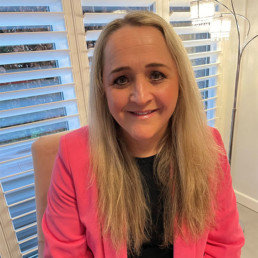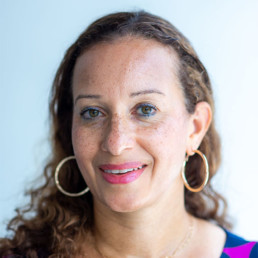Making the DEI mission of your school mean more than just words.

Written by Rob Ford
Rob is an educator for nearly 30 years, a history and politics teacher, a school leader in various schools in the UK and was principal of Wyedean School in the UK, before being appointed as Director of Heritage International School group.
“Our lives begin to end the day we become silent about the things that matter”. MLK
As my colleague sobbed with frustration and emotion in my room one afternoon, after a long day at school, going through what had just happened in class, I realised in that moment how powerless I felt there and then as a person but I knew how powerful my school’s culture, ethos and policies truly were in these awful moments. More than just words when put to the test to support my colleague as she asked for my help as a school leader.
My colleague, an international teacher, had been on the receiving end of a racist comment and it underlined to me just how much work we still have to do in our schools and communities to ensure such hurtful and offensive moments don’t happen especially when it comes to the words, beliefs and actions of children and young people in our care.
When we found the students responsible and put in place the necessary sanctions & follow up actions warranted, the comment from one parent said this to try and downplay the incident; “It’s like he was at the same table when the waiter was abused but all get thrown out of the restaurant”.
Illustrating perfectly with the choice of words that even the most liberal, educated, wordly wise and enlightened of school communities, especially those with many nationalities and a strong global outlook, need to continue to work together with the whole community, to challenge and change such mindsets. In contrast, the students were actually very contrite, apologised, owned their responsibility and repaired the damage done with their teacher who was prepared to move forward with them on this basis.
We cannot ever be silent on such issues as school leaders, nor should we feel powerless individually to tackle these issues successfully. We need to prioritise clear policies, culture, staff training and meaningful education in schools around issues & attitudes such as racism, nationalism, prejudice and hate that, unfortunately, have become more widespread in the 2020s around the globe. Doing nothing or hoping it won’t ever be something you will have to address is not an option either for any school leader.
Your school culture is not international because it says it in the title.
It is always quite surprising how many school leaders feel that issues around racism will never affect them because they are “an international school”. This is a very false assumption as much as stating how many different nationalities are in the school community. It doesn’t mean a school is diverse, equitable or inclusive and it’s a “lazy assumption” and derelict to avoid having a practical strategy in place because you say you are in the school’s name. Words matter here.
You need a robust Diversity, Equity and Inclusion Policy in place.
Your DEI policy should sit alongside the handful of ones, like Safeguarding, SEND, Teaching and Learning, Complaints, that you have in crumpled paper form, covered in notes and highlighter on your desk as a school leader because they are used as part and parcel of daily school life. There are some really effective, comprehensive and robust DEI policies out there to look at and adapt to your school.
Your DEI policy needs to be regularly reviewed, a governor responsible, a senior leader made responsible for it, and for it to be made publicly available, for your whole community to be aware of it with the key points clear. Get good outside experts to scrutinise it and for them to challenge you as a leader, your governors and your team on it as COBIS did to me and my school last year as part of our standards accreditation.
You need regular CPD for staff awareness and all your team believe and operate in this culture.
I couldn’t imagine annual staff training in August or regular CPD throughout the year, without time spent on our DEI, any more than I would leave safeguarding, the fire drill or Teaching and Learning out of what is central in the education and duty of care towards children. There are some incredible voices and forums out there for schools to follow and engage with and bring that outside expertise and experience to your school. Especially for schools and communities operating in homogenised and monoglot environments. Your DEI policy needs to be even more central in your strategy.
There are some incredible voices and forums out there for schools to follow and engage with and bring that outside expertise and experience to your school so tap into it; for example we have used Jon Gibson and Backdrop Education for staff training around inclusion and equity, America House in Chisinau extensively on diversity training, our governors have worked with Jackie Beard, a NLG and used the DEI programmes from NGA. COBIS have been working with Angela Browne and Hannah Wilson to deliver DEI training in schools and we are signing staff up for this outstanding & highly recommended programme for the courses this year. We also follow Hannah’s work in offering free DEI conferences and webinars to educators in the UK and around the World.
Raise student (and parental) awareness regularly, celebrating and commemorating our global, diverse communities in school daily life.
This is where you need to be prepared to be less than silent, especially in a World of labels thrown at schools such as “woke” or “cancel culture” for daring to celebrate and commemorate events in the global calendar such as Black History Month or Holocaust Remembrance. Do not shy away from what may be perceived as difficult topics or fearful of reactions.
In those school boards in the USA, where some parent groups are challenging schools for holding Black History Month events this February, because they believe it is teaching “CRT” (critical race theory), school leaders are tackling this challenge head on legally as we finally see this “false equivalence” called out and for a many, a hill definitely worth a stand on.
In Eastern Europe, the ugly racism black English footballers endured recently playing Hungary, became a very good debate topic for our IGCSE and A Level students and I was proud to see all of them call it out for the hate and ugliness it was. These are not the values these students want or their part of the world to be associated with.
We also are facing in Eastern Europe the contextual challenge of the conflict of Russia towards Ukraine, with students of both countries in our community, so we have worked with teachers on how to handle difficult questions on it and deal with issues that may arise from students in a safe arena of dialogue. This is the very reason why we educate children.
Make your community more inclusive and diverse.
This should include a recruitment policy that is more than just centred towards white Anglo-American educators and truly brings the global community to your school. I still hear the positive words of one of my students when she said coming to Heritage is like going abroad each day.
The same is about the speakers you have in school, the role models for children chosen and what you study in the curriculum. I have no issue with special days or months for events in the global curriculum calendar because it is a good excuse to highlight the work that is consciously there daily and it is not just for one day.
Schools shouldn’t worry about the odd criticism on social media because you celebrate or commemorate one day either, as long as this isn’t the only time some topics or events are looked at and studied. A “one off” is not a school culture but it is a good starting point to build on. Throughout this academic year, the UN’s #FightRacism campaign has underscored so many wider curricular events especially through whole school assemblies and cross curricular days we have aligned with as a school.
Conclusion.
We should live up to our school’s mission, culture and ethos, especially where we want future leaders to lead with the very values we claim we are about in our schools to young people including diversity, equity, justice and inclusion for a better future. Or as school leaders we will end up remaining silent on what matters most.
Ukraine, Russia, Palestine, Israel, Afghanistan, Covid-19, Climate Change…and so much more: how to get Political Impartiality right.

Written by Zahara Chowdhury
Zahara is founder and editor of the blog and podcast, School Should Be, a platform that explores a range of topics helping students, teachers and parents on how to ‘adult well’, together. She is a DEI lead across 2 secondary schools and advises schools on how to create positive and progressive cultures for staff and students. Zahara is a previous Head of English, Associate Senior Leader and Education and Wellbeing Consultant.
The last few weeks, or perhaps years, feel like a surreal blur when thinking about our global context. From the outbreak of Covid-19 to the recent war in Ukraine, it is now as if we are living through the dystopian and historical literature I once taught through fictional and non-fiction texts in the classroom. As teachers and educators there is an expectation that we not only educate students about these topics, but we must know and be aware of every article and news feed that emerges on a daily basis. In many ways, the recent Political Impartiality Guidance released by the DfE was as much to refresh our responsibilities as educators, but also to reassure teaching professionals too; unfortunately, social media coverage and wider analysis of the guidance seems to suggest the opposite. Our students and colleagues want to learn, discuss and explore current affairs, but how do we do this in light of this guidance and a school climate, where GCSEs, A Levels, limited time and limited resources dominate?
Much of the specific economic and political facts go over my head (even as a DEI Lead). Equally, my advice to teachers and schools is that you do not need to be a global, political, geographical or economic expert to address these matters. Instead, in order to get political impartiality ‘right’, whilst prioritising curriculum, teaching, learning and pastoral needs, we must remember what teachers and schools do best: we can critically navigate and evaluate the differing perspectives of world politics without being political. We can support students in how to challenge and respectfully discuss contentious topics. We can also help our students learn to be empathetic, acknowledge their emotions whilst being mindful of others too.
However, this in itself is challenging considering the ‘diversity’ within teacher training and lived experiences too. To help teachers and education professionals, below are some key learning points and explanations that can help schools get political impartiality right; if we are aware of them, we are more likely to create inclusive, safe spaces for all of our students and staff too.
Media Bias
There has been an outpouring of sympathy, global empathy, local and community charity and Influencer support for Ukrainian refugees – and rightly so. It has been heart-warming and necessary to see so many come together at a time of intense suffering to protect and support our human race. However, the media coverage and perception of refugee status has been problematic. In many ways, it seems some Western media outlets have usualised poverty, strife, pain and refugee status for particular races and regions but portray it as wrong for Western, white, ‘blue eyed’ individuals to experience the same. The question for teachers that might arise here is how do we explore such controversial media bias without making it ‘political’?
Aisha Thomas, founder of Representation Matters, asks a pivotal question: what story is your curriculum telling – a question that could not be more relevant in light of media bias, social media algorithms and being politically impartial in the classroom.
- Does your curriculum teach success stories from the East, North, South and West?
- Does it teach socio economic barriers (and opportunities) in the West, East, North and South?
- Is it gender equitable?
- Does it elevate the voices of all protected characteristics? Does every member of your class ‘see’ and ‘hear’ themselves in lessons?
- Is it intersectional?
- Is it fair?
- Is it truthful?
- Does it allow students to question, critique and evaluate the situations independently?
These are worthwhile questions to bring to the forefront of any CPD training and classroom work you do to strategically address belonging, equity, anti-bullying and teacher/student safety.
The media sources referenced above also contain bias – pretty much everything we read, see and explore does. However, it is important to explore the language and literacy of a range of media sources so students are able to have critical, mature and nuanced discussions – what every school ultimately aspires to!
Selective Empathy
Selective empathy is when we empathise with a particular group, particular causes and people for many reasons: it is dominant in the news; we relate to it, or maybe it feels close to ‘home’. Whatever ‘it’ is, it somehow resonates so much that we find ourselves becoming socially just, publicly outraged and visibly allying with a particular cause or issue. For example, you may notice that certain members of staff or students visibly ally with some causes more than others, whether that be the war in Ukraine, the Israeli-Palestinian conflict, anti-Semitism or LGBT+ rights.
Being selective in how and with whom we empathise in a globally diverse society is problematic. In many ways, it can lead to ‘whataboutisms’, alienation and further antagonism. If we are really committed to creating a diverse and inclusive world where protected characteristics need not exist and everyone feels a sense of belonging, we must approach all areas of DEI consistently – with nuance and transparent, shared values. Schools, teachers and students will need to ask themselves how they are creating safe, equitable spaces of belonging regardless of geography, economics, beliefs and values. Individuals with and without protected characteristics, individuals from marginalised and non-marginalised backgrounds need work together to create a sustainable culture for DEI. Equally, centralising ‘lived experiences’, the intersections of society and people who often fall victim to decisions and events beyond their control are who we need to ally with – they need our voice and their voices amplified. This is not political, that is just empathy and being human.
However, acknowledging our empathetic responsibilities can feel jarring; it can make some feel uncomfortable, critique ‘woke culture’ and more. Some may feel they are able to unapologetically selectively empathise – why should it matter that I empathise with one cause more than another? Why does it matter that I share my outrage for the war in Ukraine but not Syria? The answer to this question requires some introspective work:
- if we felt uncomfortable advocating for the rights and safety of Palestinian citizens in the Spring/summer of 2021, but little discomfort advocating for the safety and rights of Israeli citizens (I am using citizens and geography intentionally here as this is not a Semitic discussion), we must ask why? Does this discomfort or lack of responsibility enter your sphere of allyship with Ukrainian refugees? If not, why? If yes, why? If you feel your heart pang when you see your child or your students in a young Ukrainian child, but not in a Palestinian, Afghan or Syrian child, question why? If you are collecting charitable donations for Ukrainian refugees but this did not necessarily feel as urgent or necessary last summer again, question it. Do you find supporting and understanding the barriers faced by the LGBT+ community more accessible than anti-racism? Why?
These are difficult questions. They are challenging, jarring and some may choose to dismiss them immediately. I encourage you to work through the discomfort and potential feelings of offence. This is not a criticism, unnecessary ‘wokeism’ or misplaced social justice work; this is a call to critically address and navigate feelings of empathy. Empathy is a skill that needs to be nurtured and learned. Allyship is a set of actions that need to be consistently practiced and addressed. This is only possible if we are always sitting and working through our discomfort. It does not need to shake our core values and beliefs – instead, it reinforces that our core values and beliefs are wholly inclusive and respectful of all human life – not selective.
Intersectionality
The last 3 years isn’t a movie set in the past or a book we might be currently studying in lessons. It isn’t a case study for exam boards (yet). It is the lived experience of all of us. There are intersections to recognise, people to listen to and an opportunity to learn about globalisation, economics and geography in real life. Ask students what changes they’ve noticed: Chanel, Netflix and more no longer trading in Russia- what does this actually mean for the global economy, but also the different intersections of society? Create opportunities to learn about the intersections of economics and business and what the world will look like beyond this war. Ask students to question the impact of certain decisions and suggestions they see (and potentially support or refute) on social media. This can help overcome the fear and uncertainty associated with the current global climate – along with create opportunities for young people in a new and equitable manner.
Explore global inequality and diverse perspectives – why and how is the current world a result of a past world? There are multiple answers to explore here. This is where history, PSHE, RE, Geography, Economics, Philosophy and Politics can take precedence on the curriculum. Consider the questions and ways in which these topics are explored in their relative subject areas and how other subject areas can adopt their approaches. How can we make changes or additions to curriculum areas to explore wider perspectives?
Intersectionality is in effect, the very key to the success of every student, regardless of their background, protected characteristic, lived experience and more. An appreciation and amplification of nuance within our schools, society, student and staff body will create a culture of belonging and there is plenty of research to suggest that ‘belonging’ leads to success.
It is possible to remain politically impartial and work within a rich and valuable teaching environment. If we take a proactive, diverse and critical approach to current affairs we will be able to overcome the fear and discomfort associated with discussing ever-changing global and social climates. And, ultimately, we have the power in a classroom to create trusting and safe spaces for our students, communities and professional bodies – something that often goes amiss in the ‘politics of social media!
Cultural Intelligence

Written by Wangu Chafuwa
As a first generation immigrant, Wangu’s vantage as an insider-outsider led to a fascination in people, social relations and culture, which led to advocacy work with the British Youth Council. Wangu now uses his social consciousness and anthropological perspectives to bring human centred insights to the world of work.
Culture – and how we move through it – has also become one of the tabloids’ favourite news beats. How often do we see articles bemoaning the rise of cancel culture or so called culture wars? It’s understandable why lots of us feel nervous about approaching culture.
Even in itself culture is a difficult term to define. The Oxford English Dictionary contains 6 distinctly separate definitions of it: ranging from ‘the civilization, customs, artistic achievements, etc., of a people’; to ‘the artificial development of microscopic organisms, esp. bacteria, in specially prepared media’; to ‘the training, development, and refinement of mind, tastes, and manners’.
Culture is one of those funny little terms we all vaguely seem to understand but struggle to pin a precise meaning to. Which poses a problem as we’re routinely expected to navigate increasingly complex cultural environments.
It’s the reason why Cultural Intelligence (or CQ, like IQ) has been described as one of the essential leadership skills of the future. But how well do we understand what that really means?
There’s a phrase that’s probably misquoted to Einstein that says ‘intelligence is not the ability to store information, but to know where to find it’. Often when people hear Cultural Intelligence they think that it means having an itinerary of do’s and don’ts for cross cultural
interactions. Having this knowledge is obviously helpful, but the thing about Cultural Intelligence is that it is a practice – it has to be applied.
“But how?”, I hear you utter in anguish from beyond the screen.
In his 2011 book, “The Cultural Intelligence Difference,” Dr David Livermore highlights four capabilities to develop to effectively practise Cultural Intelligence:
CQ Knowledge relating to knowing different cultural expectations and the nuances of intersectional cultural expressions.
CQ Strategy relating to your ability to plan and prepare for multicultural interactions.
CQ Action relating to how appropriately you adapt your behaviour to accommodate different cultural contexts.
CQ Drive your interest and motivation to keep finding out more about different cultures.
Cultural Intelligence is the acknowledgement of the fact we all come from different places that hold deep meaning to us and a respect for how this shapes our individual perspectives. No one wants to be treated in aggregate. Practising Cultural Intelligence allows us to see people in their rich difference rather than one in an anonymous blob.
Our struggle to get to a singular definition of culture isn’t a failure to express, it’s a representation of the living, transforming and always shared experience that is culture.
We can see this buzzing diversity inherent in culture in the sheer number of different cultural expressions living around us. In all this contrast and colour is an infinity of possibilities. And the ever-present potential of friction.
The capabilities underpinning Cultural Intelligence may sound a bit jargony but luckily underpinning them is an innate capability to navigate our inherent differences. We are social creatures – all possessing empathy muscles that hardwire us to build bridges between us.
The Intersection of Race and Neurodivergence

Written by Anu Roy
Anu is a TeachFirst leadership Alumni and digital trustee and teacher committee lead for charities in England and Scotland. She is currently a digital curriculum development manager and works in inclusive education projects incorporating tech.
‘Just stop fidgeting please’.
I have been told this my entire life and truthfully, I have then said the same sentence to students during a lesson. Students who do not seem focused, who might have lost their pen, cannot find the right page. As teachers we all know these students, but with that sentence -do we run the risk of reducing them to something they cannot control?
Traditionally, the narrative around restless behaviour in the classroom can be characterised as an uninterested student, potentially becoming disruptive if the teacher does not intervene. However, neurodivergent students with ADHD may find it difficult to focus, feel restless and struggle to overcome impulsive behaviour. This is particularly challenging for BAME neurodivergent students who are continually underdiagnosed for ADHD, making it harder to raise awareness and create an action plan to support them.
In our current education system, I have realised that there are BAME students who have struggled from nursery all the way to their graduation at university with difficulties which arise from ADHD as a root cause, but they were never diagnosed. The inequities of treatment and resources coupled with the systemic barriers faced by people of colour can mean that the joy of learning is lost when these students feel like they are not meant to succeed. Instead, educators have a duty to shape systems which support neurodivergent students and address their barriers to learning.
The next time we see a student looking restless, instead of assuming they are disinterested, it is important for us to take the time and speak with them about whether they have trouble concentrating and what measures we can put in place to help them navigate that. When all students are excited and keen to learn, what we can accomplish in the classroom knows no limits.
How East Stanley Primary School used Rainbow Laces to build a more inclusive environment for its pupils

Written by Adam Walker
Adam is a Primary Teacher at East Stanley Primary School in Durham and is a member and advocate of the LGBTQ+ community.
‘The number one thing is the inclusivity benefits of the resources. Not having pupils question who is playing football and building a much deeper level of respect for each other.’
Creating an inclusive environment for pupils is a top priority for many teachers and their schools. As we celebrate LGBTQ+ History Month, Adam Walker, a teacher from East Stanley Primary school tells us about how using the Rainbow Laces resources, from Premier League Primary Stars, helped create a more inclusive environment for his pupils – increasing their understanding of gender stereotypes and the LGBTQ+ community.
“We had an incident at a football match a few years ago where a pupil from our school called a player from another team a homophobic slur. It was at this point we realised that we needed a solution that we could use to support our pupils in understanding the importance of being inclusive. After a long search to find the right solution, we came across the Rainbow Laces resources from Premier League Primary Stars. A bank of free resources that could educate our pupils around the importance of inclusivity, challenging stereotypes and being a good ally – it was exactly what we were looking for.
At East Stanley we are seeing more girls wanting to get involved in sport. So it was great to see Premier League Primary Stars use male and female professionals in their resources to show balanced representation of real sport. Activities such as ‘Do it like a…’ and ‘Be an ally’ have been popular with the pupils. It has especially given the girls something to look up to and through challenging stereotypes we have mixed teams playing football with a deep level of respect for each other.”
East Stanley has used the Rainbow Laces resources in PSHE lessons at the school to create a more open environment: “The Rainbow Laces resource pack helped us in our PSHE lessons when talking about what it means to be a part of the LGBTQ+ community or discussing gender stereotypes. Now all the pupils are aware of different types of representation; they know that it doesn’t matter if you are homosexual or heterosexual, a boy or a girl, your ethnic descent, or what your first language may be.”
As a member of the LGBTQ+ community, Adam appreciates the difference that resources like Rainbow Laces make: “Now that I have these resources I reflect and think that if material like this had been available when I was in school, it would have helped me to identify and feel more comfortable as a result of inclusive topics being spoken about openly. The more we use material like this in primary schools, the more we will create a better environment for everybody to live freely. It is only going to have a positive influence.”
Speaking about whether he would recommend the resources to fellow teachers, Adam said: “I would 100% recommend them. Knowing how the PSHE curriculum works, Rainbow Laces has been great for us. For other teachers who are looking to increase inclusivity at their school, we have loved the outcomes the resources have given us. Premier League Primary Stars has a wide variety of resources too and there is also the opportunity to build Rainbow Laces – and others resources – into additional lessons around Maths, English and PE. We have seen a real difference and our pupils are happier as a result.”
At the end of 2021 and during the Premier League’s Rainbow Laces campaign, Premier League Primary Stars launched a new resource pack called ‘Rainbow Laces – This is everyone’s game’. The pack, perfect to build into PSHE lessons this LGTBTQ History Month, includes an educational film, and supporting resources, celebrating LGBTQ+ football fans and showcases the power of football to bring people together. The film tells the story of a young Sheffield United fan and member of the LGBTQ+ community, who talks about what football means to her and how it has played a part in helping her to feel proud of who she is.
Premier League Primary Stars has a wealth of dedicated LGBTQ+ and Anti-Discrimination resources – all free – for teacher to use in the classroom linked to English, Maths, PE and PSHE here.
About Premier League Primary Stars
Premier League Primary Stars is a national primary school programme that uses the appeal of the Premier League and professional football clubs to inspire children to learn, be active and develop important life skills. Clubs provide in-school support to teachers, delivering educational sessions to schools in their communities. Free teaching materials ensure the rounded programme, which covers everything from PE and maths to resilience and teamwork, is available to every primary school in England and Wales.
The Premier League currently funds 105 Premier League, English Football League and National League clubs in England and Wales to provide in-school support for teachers.
For more information about Premier League Primary Stars or to register, visit: www.plprimarystars.com
You can also contact Ben Lewis-D’Anna on blewisdanna@everfi.com or 07590465455.
Maximising Connection During Maternity Leave

Written by Liz Cartledge
Senior Vice Principal at a large Secondary School in Sheffield. Leader of Inclusion, Behaviour and Designated Safeguarding Lead. Liz is the mother to twin girls and returned from maternity leave in September 2020.
As a leader, the constant care of students and staff is arguably the most important and biggest responsibility in the long list of daily tasks. Getting the balance right and knowing what to do in each unique case can be hard.
It is true that we learn through our mistakes, however, sometimes it is helpful to be able to reach for some real-life guidance. Sometimes the hardest of experiences can make us the strongest. I personally experienced a lonely and isolating maternity leave due to the COVID-19 pandemic and lockdown in 2020 and thus feel I can offer some useful insights and support to schools who want to ensure their staff on maternity leave are cared for.
Since returning to work, I have often been asked to support other newly pregnant staff and on occasion those off with long-term absence. I feel empowered to help staff and one key reason I cite for this is because I feel confident sharing my own personal struggles and vulnerabilities, which I encountered on the journey to motherhood. Through Nourished Collective who featured a series called Mother, Sister, Daughter, Woman (Copy of This is How We Look (mcusercontent.com)), I shared my story which has helped me to break the silence that can exist around this issue. This has helped me personally and professionally to become a stronger leader.
The key is to build a school where staff feel valued, heard, and listened to. Sharing my story has given me the drive to know I can provide others with the space and empathy they need. It doesn’t matter what the issue is, if we, as leaders, are open about our emotions it can mean we are relatable to others; so I urge you to be vulnerable and see the benefits from it.
Recently, I have been considering the support we provide our staff with whilst on maternity leave. During my maternity leave I experienced reduced support, no baby groups and limited access to a GP. Maternity leave can be incredibly lonely and isolating. Connection is therefore key, and schools can provide this.
Within any school there is an abundance of knowledge and talent. Schools can offer emotional sanctuary and security. New parents/carers should be encouraged to share photos and updates regularly with a key member of staff. Furthermore, if you have a few members of the team off at once, could a group (perhaps via WhatsApp or equivalent) be set-up pulling all together?
I am often asked to be the key person identified to talk to new or soon to be new parents/carers. Currently, I am in regular contact with new Mums on maternity leave to provide them with a close connection with school. This helps us keep in touch and is a lifeline on some days for those Mums. I know this having cared for twin babies during a pandemic!
Do you offer this 1:1 support for those on maternity leave? Do staff have the chance to have 1:1 chats with a named ‘go to’ person on SLT? Could this help morale and well-being at your school if you make these subtle changes?
What kind and frequency of contact do you have with those on maternity leave? They are, after all, still employed by the school doing what is arguably the most important job of their lives. We owe it to them.
Remember, as leaders we can make a huge difference. Simple acts of kindness go a long way, sending cards or flowers can help bridge the gap that can grow when on leave. Creating a sense of family first is vital for staff retention.
Occasionally, without bridging this gap, we can risk staff being anxious to return or not returning at all.
Another key step to helping staff on maternity leave is to give them knowledge. By making them aware of the policy, for example what KIT (Keeping in Touch) days is a great start. It should not just exist in a policy given to staff to read. This could become part of pre-recorded videos shared with staff or information passed on in a 1:1 meeting before they leave. The impact of doing this is that it helps staff to be empowered and feel supported at this important time.
When staff do return, make sure they have the chance to meet a key person they feel comfortable with and that well-being chats are regularly put in. A review meeting 6 months or sooner after returning is a must to help the member of staff feel supported and to be able to reflect on how they are coping with work alongside parenthood.
Remember, it takes time for the member of staff to adjust to work. Schools move at a fast pace, and we must be patient. Small steps are acceptable. Don’t be too hard on yourself if you are returning and don’t expect too much if you have someone returning, at first- be flexible! Personally, it took me 12+ months to be myself again at work. Letting staff know this is great for their self-confidence and self-esteem which can be very low with sleep deprivation!
Celebrating the return of staff from maternity leave is important to share with all staff in briefings, in newsletters with parents/carers and with governors. It helps everyone see the member of staff returning as a new person which I feel is supportive and celebratory of their achievement/s!
The more we share, the greater the understanding will be for all and the greater the potential for empathy can begin.
What it means to be a diverse educator

Written by Chloe Roberts
Chloe is an English trainee from Hampshire. She is currently completing her training with BASCITT.
Teaching for diversity refers to acknowledging and celebrating a range of differences in and out of the classroom. Being an inclusive practitioner who embraces difference allows transformations in the way we think, teach, learn and act. This is vital in ensuring all students feel celebrated in their learning environment. Although we have come a long way in recognising and celebrating diversity, we still have a long way to go. It is not a case of acknowledging that you are already ‘inclusive’, it is about educating yourself on key aspects of your students’ lives and the dynamics of society. This is something that I will continue in my practice as I embark on my journey to becoming an English teacher. I am quite fortunate that in my subject I can use a variety of resources within the classroom that celebrate a vast amount of different people and cultures, however, this is more limited in KS4 due to the GCSE specifications. Understandably there are more limits in other subjects but having more of an awareness of what you could do is vital. So going forward, what can you do to increase your own knowledge and understanding on diversity?
DiverseEd:
This site is a hub of resources and knowledge on diversity and inclusion. Hannah Wilson has created a space where a variety of practitioners can come together and share thoughts and research. In addition, events and seminars are organised regularly to support teachers and equip them with a breadth of knowledge.
I attended an online conference with Diverse Ed and the range of topics discussed were extremely informative. Hearing from a diverse number of practitioners gave me lots to think about in terms of my own practice. Inspiring teachers to be activists and encouraging a diverse number of people into the profession is a way to make waves in the education community. Jo Brassington, who discussed their own experience in the classroom as a non-binary teacher, claims that ‘to make change we need to be seen in the room’. I absolutely agree with this, as a member of the LGBTQ+ community I have always struggled with being open about my identity with others. Discussions like these have encouraged me to ‘be seen in the room’ and embrace my own differences, which some of my students can relate to. I am no way implying you must ‘come out’ to students if you do not feel comfortable, but having some transparency about your own lived experience can create a safe space for others to.
The whole morning was incredibly thought provoking and gave me a lot to think about in my own practice. Fortunately, there are recordings of the conference on Diverse Ed alongside lots of blog posts which can inform your teaching. (see below in further resources for website).
Seminars:
Over the past year I have attended a variety of seminars relating to diversity in education. All of which I have found on Eventbrite. I find this website incredibly useful for a range of different forms of CPD. It is accessible and the majority of seminars are free to access. This is another way to increase your knowledge on a variety of different topics, including diversity within education.
A recent seminar I attended was on ‘Recovering Black Storytelling in Qualitative Research’. This covered how we can encourage our students to use their narrative voice alongside a discussion on Stephanie Toliver’s new book, which is being released. She discussed the literary devices she used in her novel and the origins behind them, which was really interesting. The thought process behind a writer’s writing is always incredibly fascinating! This was a celebration of black culture along with discussions that can translate into the classroom. Although curriculums are becoming more diverse, I have found there is still a lack of celebration when it comes to people of colour; the negative connotations that are presented in literature through the texts we have historically studied are not changing. Why are we continuing to study outdated ideologies? I am not discrediting the fact that it is important to have an understanding of such things, but to prioritise information presented by white cisgendered men, does limit our understanding and knowledge of other cultures.
Overall, seminars are brilliant and can really inform your practice. Eventbrite has such a range from something subject specific or general CPD for teachers. I recommended having a look around the site and searching for seminars that spark your interest.
What can you do in school?
I think a good place to start is speaking to colleagues and gauge an understanding of what your school already does. In my previous school, I knew that there used to be an LGBTQ+ and ally group during lunch times. I then decided to reinvent the club and bring it back. I wanted to create a space where anyone could come and discuss their experiences and learn about the LGBTQ+ community. I was really pleased with the turnout and the maturity all students displayed when discussing their experiences. It was great to hear their ideas and what the school could do to ensure they were being more inclusive.
Speak to your departments and see what you can bring into the curriculum. Again, as an English teacher I am fortunate to be able to bring in a range of different texts that students can learn from; however, tutor time is an excellent way to go into more detail and have discussions with students regarding diversity and what it means to them. Obviously PSHE is an excellent way to integrate these topics but get to know what your students are learning in PSHE and relate that into lessons. In addition, during LGBTQ+ History month and Black History month, there are a range of one off lessons that you can use in school which celebrate and educate those on diversity. Please don’t limit yourself to using these resources during their celebratory months, there are so many amazing things we can learn from a variety of lived experiences.
Here below are a range of resources that I have found really useful in my learning journey:
Books:
- How to transform your school into an LGBT+ friendly place by Anna Carlile and Elly Barnes
- Celebrating difference: A whole school approach to LGBT+ inclusion by Shaun Dellenty
- From Ace to Ze: The little book of LGBT terms by Harriet Dyer
- The Emperor Has No Clothes: Teaching about Race and Racism to People Who Don’t Want to Know By Tema Jon Okun
- So You Want to Talk about Race By Ijeoma Oluo
- White Fragility By Robin D’Angelou
- Why I’m No Longer Talking to White People about Race By Renni Eddo-Lodge
- Memoirs of a Black Englishman By Paul Stephenson
- White Privilege By Kalwant Bhopal
- Not Light but Fire: How to Lead Meaningful Race Conversations in the Classroom by Matthew R. Kay
- Facilitating Conversations about Race in the Classroom by Danielle Stewart, Martha Caldwwell, and Dietra Hawkins (comes out in March)
- Knowing How To Discuss Race In The Classroom: A Guide For White Teachers On How To Develop and Understand Racial Literacy by Ashlee A. Jeannot
- A Little Guide for Teachers: Diversity in Schools by Bennie Kara
Websites:
- Stonewall: LGBTQ-inclusive education: everything you need to know (stonewall.org.uk)
- Youth.gov: Schools | Youth.gov
- Breakout Youth Basingstoke: About Breakout Youth: LGBTQ+ Hampshire-based Charity
- Diverse Ed: https://www.diverseeducators.co.uk/
- Black Men Teach: https://blackmenteachtc.org/
- Preparing for Cultural Diversity: Resources for Teachers: https://www.edutopia.org/blog/preparing-cultural-diversity-resources-teachers
- Resources for Educators: https://equaliteach.co.uk/education/classroom-resources/
People to follow on Twitter:
Here are some of the things I have thought about when increasing my knowledge on diversity. It is a journey and it is important to ask yourself difficult questions and reflect on what you can do within the classroom. As teachers we can all be activists and create an environment where all of our students feel heard and validated.
Is your DEI team an unhealthy microcosm of your school or organisation? How you can journey through and learn from the process, in order to inform your future practice.

Written by Caroline Davis
Caroline Lucy Davis, International English Teacher & Diversity, Equity and Inclusion Advocate with a particular interest in the intersection of gender and race.
This article, which was presented at the AIELOC (Association of International Educators and Leaders of Colour) online conference 2019, discusses my experience of working on DEI initiatives where there was evidence of clearly inauthentic and tokenistic practice to achieve certain targets and tick box exercises. My journey is one of discovery to disruption to learning and exiting one educational organisation’s version of cultural relations and DEI work.
I became a member of my organisations DEI team and discovered a fractured, non-communicative, barely functioning group receiving very little guidance. If I examine my reasons for seeking out the team at the time I did, it is really quite simple and why others may do the same. I was struggling with certain issues surrounding gender in particular and I wanted an outlet. I would later learn that I was certainly not alone in my experiences. My experiences also resurfaced my long-term interest in social issues and experiences of marginalisation. I found the lack of initiative and direction of the DEI team very infuriating and was keen to move things forward.
So I found other ways to impact DEI initiatives through external volunteering opportunities sometimes connected to the organisation. I joined local and expatriate women’s groups, ran International Women’s Day events and was involved in a Global Race and Culture Working group. I networked internationally and it was this extending of my circle which was very enlightening and liberating for me. After quite some time of learning and leading more these initiatives, as well as feeling frustrated by the lack of movement on issues, I became lead for the DEI team. Excited, I threw myself into my new shiny (unpaid!) role in an area that I felt passionately about.
I researched and thought carefully about how I would establish a representative team and one that would work on the areas of EDI that mattered most, and were most pressing to the staff. My team was going to be functional and effective! I read about how to have inclusive meetings and communication, as I had been long-term recipient of the opposite at the organisation. I had become used to hearing the same old dominant voices and seeing the same old faces…those faces that were all so similar to one another.
Working conditions did not make communication, meetings, organising events or initiatives easy, and then there were the office and organisational politics. Despite the challenges and we had some successful, if with less attendance than hoped, events and initiatives.
At the same time, the idea of a microcosm became apparent to me when discussing issues even within the EDI team. We just did not seem to have the same understanding or experience of things. Could the EDI team, as representative of the wider organisation, be part of the problem? I indeed found clearly inauthentic and tokenistic practice to achieve certain targets and tick box exercises and even found my work accredited to someone else.
After delivering a presentation on racism in the UK and the lack of people of colour at senior leadership in the organisation, a manager approached me to say they had never noticed any racism and that was why they were so proud to work for the organisation. It was alarming that evidence can be so clearly under one’s nose, but remain unseen. Do we need to see racist acts to figure out that racism must be at play if there are no people of colour at senior leadership levels?
Clearly DEI teams can be unhealthy microcosms of wider organisations, just as classrooms, offices, schools, organisations can be unhealthy microcosms of wider society. So how do we journey through and learn from the process to inform future practice.
In my experience, the learning is the work and it is as rich, as it is exhausting. Keep a record of what you learn and how you learnt it. Seek out opportunities and reach out to the wider network. Stretch your microcosm bubble, perhaps you can burst it! By expanding my network and volunteering, I came to understand that there is a bigger world out there and people who see what you see, and want to make a genuine difference. I learned a great deal and despite the apparent silence, I believe I did disrupt things. I had felt invested and at the same time captive there and in the end decided that it was best for me to exit that educational organisation’s very outdated version of cultural relations and DEI work. This is how to journey through, learn from the process in order to inform your future practice.
The Power of the Community

Written by Dena Eden
English teacher and writer based in Norfolk. MA in Educational Research and currently working as an English Standards Leader.
I signed up to the recent #DiverseEd conference knowing I would hear about some brilliant examples of Diversity, Equity and Inclusion work going on across education; I didn’t expect to finish the conference feeling empowered. Listening to authentic voices and lived experiences encouraged me to reflect on my own, and has given me the confidence I needed to forge ahead with necessary change.
As a cis white person I recognise my privilege. As a woman, I have experienced the frustration of my ideas not being taken seriously until a man repeats them. My choice on how to present physically also means people have undermined my intelligence and assume I enjoy shopping and ‘partying’ – they were someone’s actual words. They are surprised when I share my achievements and professional life before teaching. They are even more surprised when they find out I’m gay. Ironically, the part of my identity which is a ‘protected characteristic’ has been met with more positive outcomes than negative. When people ‘find out’ I am gay, women treat me more warmly and men take me more seriously. But that’s a whole other blog post.
I want to share my own experience to try and explain the effect the #DiverseEd conference had on me: despite being invested in creating a truly inclusive environment for a long time, I didn’t feel ‘diverse’ enough to be the person to do that – but at the same time also felt a huge pressure from being part of the LGBTQ+ community to be a voice for those who don’t speak up. Growing up in Birmingham and then living and working in both Mexico and the USA means that I have experience of living life in the role of the ‘other’ – but also that I have always worked in environments rich in diversity. Embarking upon a career in education in a significantly less diverse area of the UK was a shock to me.
Despite absolutely loving where I live and work for lots of reasons, it does continue to surprise me when I witness the problematic attitudes and language used when talking about diversity and inclusion. Discriminatory language is used without understanding why it is a problem and the pervasive idea that ‘real’ prejudice is overt and/or violent means many people do not recognise their privilege: Prejudice hides behind ignorance; tokenism acts as acceptance; tolerance is sufficient.
Understanding inaction: providing solutions not problems.
My experiences have frustrated me and as a result, I approached leadership in the Trust I currently work for to start a conversation; it was met with enthusiasm and support and has led to me setting up an Inclusive Communities group working with outstanding colleagues invested in making long lasting change.
Up until the #DiverseEd conference, I had some idea of what I wanted us to do – but have been apprehensive. For me, a truly inclusive environment has always been about addressing the root of the issue – people’s mindsets. Until people are willing to admit both their own privilege and the importance of the work that needs to be done, nothing will change.
Watching the conference helped me to reflect on previous conversations and helped me to understand that I had been too concerned with losing respect or upsetting others by voicing how crucial the work around diversity, equity and inclusion really is. But without action, we are conversationalists not activists; my thinking has now shifted from worrying about reactions to focusing on my own actions.
Before the conference, I felt like the battle was in trying to get people to appreciate the importance and immediacy of the work that needs to be done – it isn’t work with immediate measurable outcomes for example. After watching the conference, I feel validated in arguing that there should be no such battle. The immediacy and importance of this work is not an opinion – it is a fact.
So moving forward, rather than focusing on whether the changes can be made, I am focusing on how they will be made. Working with an incredible community and calling on the expertise of my colleagues, we are going to approach people with solutions rather than problems. This is where we are going to start:
- Looking at policy within schools and across the whole Trust.
- Educating our staff to be able to challenge one another and our young people – this will be led by training from authentic voices sharing their lived experiences.
- Recognising multiple stakeholders in this work: parents, governors and HR should be included in our approach to EDI.
- Working with our incredible curriculum team to explore ways we can include balanced and meaningful representation into our existing work.
It was overwhelming to think about the work that needed to be done; now I’m excited to get started. We deserve genuine support, not allowances; to be comfortable as well as safe; celebration, not tolerance.
The British Army’s Diverse Resources for the New Term

Written by Eleanor Brown
Head of Education Marketing at Capita
The British Army has developed new resources to help students aged 11-16 build their understanding of why it is important to commemorate significant groups in the history of the British Army. Focusing on diversifying the curriculum, This resource pack features Women in the Army, LGBTQ+ Voices and Black History resources with links to PSHE, History and Citizenship.
Each of the resources are available for key awareness days in the school calendar and include ready-to-use lesson plans, assembly presentations, case studies and films to help students understand the changing roles of service people in the British Army throughout history, reflect on who we remember as a society or individuals and explore what it’s like to serve in the Army today. The resources are part of the British Army’s dedication to addressing the inequalities within the organisation and raising awareness of the contributions of service people both historically and now.
Women in the Army Resources
An excellent resource for International Women’s Day on March 8th, the Women in the Army resources have curriculum links to PSHE / Health and Wellbeing, Citizenship and History. The lesson plan offers interactive tasks to help young people to recognise and challenge harmful stereotypes and prejudice both at work and in society as a whole. Showcasing the significant roles women have played from the 1800s to today, the resources explore key terms such as feminism, gender and intersectionality, encouraging students to consider the evolving roles of women in the Army in the context of wider society.
The assembly slides and the film builds on these key themes, showcasing the contributions and accomplishments of women in the Army and reflecting on the stories we remember. The assembly brings a specific focus to the history of women in wartime and features empowering women including Captain Flora Sandes, who was the only woman to fight on the front line of WWI, and Adelaide Hall, a jazz singer who entertained troops in WWII and was the first Black performer to be given a long-term contract with the BBC.
LGBTQ+ Resources
Perfect for LGBT History Month 2020 in February, The LGBTQ+ Voices lesson resources show the progress made within the Army and in wider society with activities that celebrate the contributions of historical and current LGBTQ+ Army personnel, including WWI soldier Edward Brittain and Deborah Penny, the first trans soldier in the British Army. Students can also learn how they can be supportive of all LGBTQ+ people, and other groups and communities, through the allyship video resource.
By profiling six historical LGBTQ+ figures, such as the mathematician Alan Turing and poet Wilfred Owen, the assembly resource asks students to reflect on their contributions. This is followed by a film featuring current LGBTQ+ soldiers, addressing the significance of LGBTQ+ history to them and the progress that has been made by the Army to ensure everyone feels welcome.
Black History Resources
These Black History digital resources for Key Stages 3 and 4 include an assembly and lesson plan to help students understand the stories of Black British, African and Caribbean service people who have often been unfairly excluded from the history books and help students consider some of the reasons for and effects of these omissions.
The assembly resource profiles service people from throughout history, while the interactive lesson resources offer source materials to help students build core historical skills and explore the contributions and stories of Black Britons, West and East Africans and Caribbean service people during World War One. The resources also offer examples of the impact of the war on different Black women, documenting case studies of a Trinidadian, British and an East African (from the Tanzania-Malawi border region) woman.
Questions at the end of each resource help facilitate discussions that address the significance of Black History Month and studying Black History more broadly and how this relates to modern discussions on race and diversity, including reflections from current Black soldiers to help build student’s discussions.
All the British Army resources can be downloaded for free online at: https://apply.army.mod.uk/base/lessons

